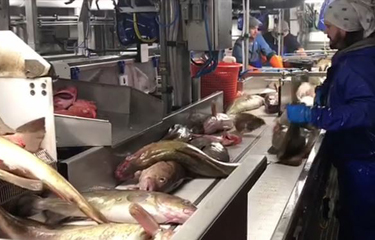Seafood industry angered by UK-Norway fisheries deal collapse

The bilateral fisheries agreement negotiations between Norway and the United Kingdom that ended with no deal reached between the two nations on Thursday, 29 April has sparked uproar in the regional seafood industry.
While both sides said that they worked hard to secure a deal, the countries said their positions continued to be too far apart to reach an agreement for 2021. Talks had been ongoing since January.
According to the United Kingdom’s National Federation of Fishermen’s Organisations (NFFO), this outcome means that U.K. vessels will have no access to fish in Norwegian waters, north or south of 62o, while Norwegian vessels will not be permitted to fish in U.K. waters, causing the loss of significant fishing opportunities. For the rest of 2021, it will also mean that quota exchanges will not take place.
Traditionally, Norway has been interested in mainly pelagic quota, while the United Kingdom has been interested in demersal species, both in the Northeast Arctic and for North Sea stocks, NFFO said.
In a statement, Hull, U.K.-based UK Fisheries Ltd. said that because the British distant-waters fleet will have no rights to fish in Norwegian sub-Arctic waters this year, hundreds of crewmen will have no work.
“This is a very black day for Britain,” UK Fisheries CEO Jane Sandell said.
Sandell added that Secretary of State for Environment, Food and Rural Affairs George Eustice owes crews and the Humberside region an explanation as to why the Department for Environment, Food and Rural Affairs (Defra) was unable to maintain the rights that the fleet had to fish in Norwegian waters for decades, “never mind land the boasts of a ‘Brexit Bonus,’ which has turned to disaster.”
“In consequence, there will be no British-caught Arctic cod sold through chippies for our national dish – it will all be imported from the Norwegians, who will continue to sell their fish products to the U.K. tariff-free while we are excluded from these waters. Quite simply, this is a disgrace and a national embarrassment,” Sandell said.
UK Fisheries has invested approximately GBP 180 million (USD 250.1 million, EUR 207.5 million) in the Humberside fishing industry over the past 20 years, and had planned further investment of up to GBP 100 million (USD 139 million, EUR 115.3 million).
Its board will now meet to decide what presence it can have in Hull with no viable fishing opportunities in its traditional grounds.
The statement also highlighted that British politicians have failed to land a single bilateral deal with any of its traditional partners around the North Atlantic – The Faroes, Greenland, Iceland and now Norway.
“The U.K. wanted to be an independent coastal state, but the only beneficiaries of Brexit will turn out to be a handful of Scottish pelagic fishing barons,” Sandell said. “Everyone else – including much of the U.K. domestic fleet and the people who work in it, will lose out.”
At an industry briefing immediately after the talks collapsed, the NFFO indicated that it would be important to have full scrutiny and analysis of the negotiations.
As both parties have much to gain from an annual fisheries deal, we are anxious to understand why it was not possible to find agreement. A meeting with fisheries ministers has been arranged, it said.
Negotiations for an agreement for 2022 are expected to begin in the autumn.
Photo courtesy of UK Fisheries






Share